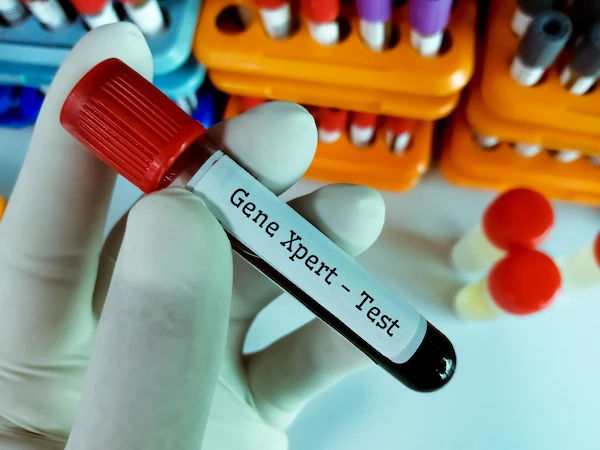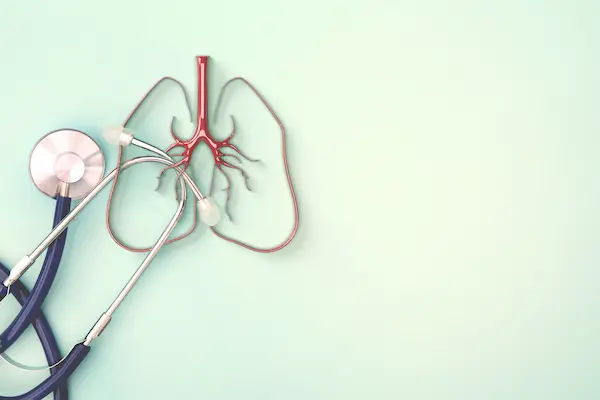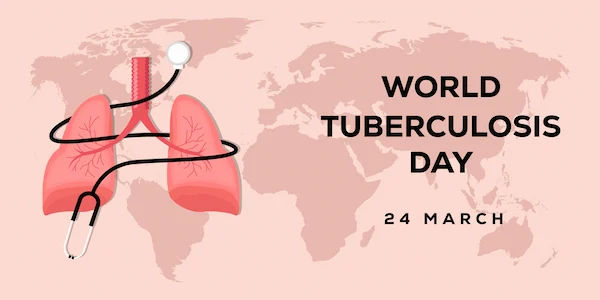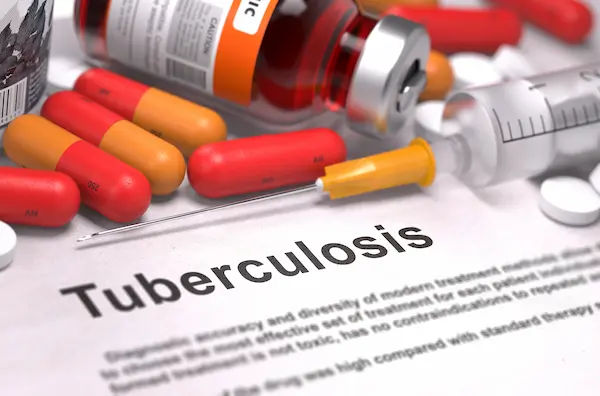Tuberculosis Lungs Compared to Healthy Lungs
Visually compare tuberculosis (TB) lungs with healthy lungs. Understand the devastating impact of TB on lung tissue, from lesions and cavities to scarring, and learn how it differs from a healthy respiratory system.

Written by Dr. Dhankecha Mayank Dineshbhai
Reviewed by Dr. M L Ezhilarasan MBBS
Last updated on 13th Jan, 2026

Tuberculosis (TB) is a serious infection that primarily affects the lungs. While healthy lungs function smoothly to help us breathe, TB damaged lungs struggle due to infection, inflammation, and scarring. Understanding the difference between healthy and TB affected lungs can help patients recognize symptoms early and seek timely treatment.
How Healthy Lungs Function?
Healthy lungs are soft, spongy, and pinkish in color. They expand and contract effortlessly with each breath, supplying oxygen to the blood and removing carbon dioxide. The airways (bronchi and bronchioles) remain clear, allowing air to flow freely. Tiny air sacs called alveoli efficiently exchange oxygen and carbon dioxide, keeping the body energized.
Key Features of Healthy Lungs:
- Smooth, elastic tissue
- Clear airways without blockages
- No signs of infection or inflammation
- Efficient oxygen exchange
Consult Top Specialists
How Tuberculosis Affects the Lungs?
TB is caused by Mycobacterium tuberculosis, a bacteria that attacks lung tissue. Unlike healthy lungs, TBinfected lungs develop inflammation, scarring (fibrosis), and sometimes cavities (holes) where bacteria destroy tissue.
Key Changes in TB Affected Lungs:
Key changes in TB affected lungs are:
1. Inflammation & Infection
- The immune system tries to fight TB bacteria, causing swelling and irritation.
- Persistent cough, fever, and fatigue are common symptoms.
2. Formation of Granulomas (Tubercles)
- Small nodules form around bacteria to contain the infection.
- If the immune system weakens, these nodules can break open, spreading infection.
3. Cavities (Holes) in the Lungs
- Severe TB can destroy lung tissue, creating hollow spaces.
- These cavities may fill with fluid or bacteria, worsening breathing difficulties.
4. Scarring (Fibrosis)
- Long-term TB leads to stiff, scarred lung tissue.
- Scarring reduces lung capacity, making breathing harder.
5. Pleural Effusion (Fluid Around Lungs)
- In some cases, TB causes fluid buildup between the lungs and chest wall, leading to pain and shortness of breath.
Symptoms of Tuberculosis
Recognizing TB symptoms early can prevent severe lung damage. Common signs include:
- Persistent cough (lasting 3+ weeks)
- Coughing up blood or mucus
- Chest pain, especially while breathing
- Fatigue and weakness
- Fever, chills, and night sweats
- Unexplained weight loss
If you experience these symptoms, consult a doctor immediately. Early diagnosis and treatment can prevent complications.
How TB Spreads and Who Is at Risk?
TB spreads through the air when an infected person coughs, sneezes, or talks. However, not everyone exposed gets sick. Factors that increase risk include:
- Weak immune system (HIV, diabetes, malnutrition)
- Close contact with TB patients
- Living in crowded or poorly ventilated areas
- Smoking or excessive alcohol use
Diagnosis and Treatment
If TB is suspected, doctors may recommend:
- Sputum Test: Checks for TB bacteria in coughed up mucus.
- Chest X-ray or CT Scan: Reveals lung damage.
- TB Skin Test (Mantoux Test) or Blood Test: Detects TB infection.
Treatment Options:
- Antibiotics: TB is treated with a 6–9 month course of special antibiotics (like Isoniazid, Rifampin).
- Directly Observed Therapy (DOT): Ensures patients take medications correctly.
- Surgery (in severe cases): Removes badly damaged lung tissue.
Important: Never stop TB medication early, as incomplete treatment can lead to drugresistant TB, which is harder to cure.
Tips for Managing TB and Improving Lung Health
Tips for managing TB and improving lung health are:
1. Complete Your Medication
- Follow your doctor’s prescription strictly to avoid relapse.
2. Eat a Nutritious Diet
- Protein-rich foods (eggs, lentils, milk) help repair lung tissue.
- Vitamin C (oranges, lemons) and zinc (nuts, seeds) boost immunity.
3. Avoid Smoking & Alcohol
- Smoking worsens lung damage; alcohol weakens immunity.
4. Practice Good Hygiene
- Cover your mouth while coughing to prevent spreading TB.
- Stay in wellventilated areas.
5. Exercise Gently
- Deep breathing exercises can improve lung function.
- Walking and light yoga help maintain strength.
When to Seek Medical Help?
If you or a loved one has:
- A persistent cough for more than 2–3 weeks
- Unexplained weight loss and fatigue
- Blood in cough or severe chest pain
Book a consultation with a specialist on Apollo 24|7 for timely diagnosis and treatment. Early action can save your lungs and life.
Final Thoughts
Tuberculosis can severely damage the lungs, but with proper treatment and care, recovery is possible. Recognizing symptoms early, following medical advice, and maintaining a healthy lifestyle can help restore lung function and prevent complications.
If you suspect TB, don’t delay—get tested and start treatment as soon as possible. Your lungs are vital for a healthy life, and protecting them is essential!
Stay informed, stay healthy!
Consult Top Specialists
Consult Top Specialists

Dr. Rajib Ghose
General Physician/ Internal Medicine Specialist
25 Years • MBBS
East Midnapore
VIVEKANANDA SEBA SADAN, East Midnapore

Dr. Rohit Basu
General Practitioner
8 Years • MBBS, DNB (General surgery)
East Midnapore
VIVEKANANDA SEBA SADAN, East Midnapore

Dr. Remya Rajan
General Physician/ Internal Medicine Specialist
7 Years • MBBS, MD
Bengaluru
Apollo Clinic, Sarjapur Road, Bengaluru

Dr. Soumen Paul
General Physician/ Internal Medicine Specialist
24 Years • MBBS
Kolkata
MCR SUPER SPECIALITY POLY CLINIC & PATHOLOGY, Kolkata
(50+ Patients)
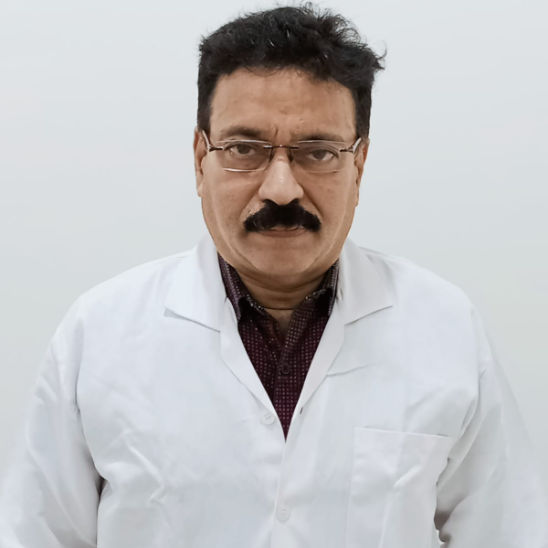
E Pradheep
General Physician/ Internal Medicine Specialist
38 Years • MBBS
Bengaluru
Apollo Clinic, Sarjapur Road, Bengaluru
Consult Top Specialists

Dr. Rajib Ghose
General Physician/ Internal Medicine Specialist
25 Years • MBBS
East Midnapore
VIVEKANANDA SEBA SADAN, East Midnapore

Dr. Rohit Basu
General Practitioner
8 Years • MBBS, DNB (General surgery)
East Midnapore
VIVEKANANDA SEBA SADAN, East Midnapore

Dr. Remya Rajan
General Physician/ Internal Medicine Specialist
7 Years • MBBS, MD
Bengaluru
Apollo Clinic, Sarjapur Road, Bengaluru

Dr. Soumen Paul
General Physician/ Internal Medicine Specialist
24 Years • MBBS
Kolkata
MCR SUPER SPECIALITY POLY CLINIC & PATHOLOGY, Kolkata
(50+ Patients)

E Pradheep
General Physician/ Internal Medicine Specialist
38 Years • MBBS
Bengaluru
Apollo Clinic, Sarjapur Road, Bengaluru

